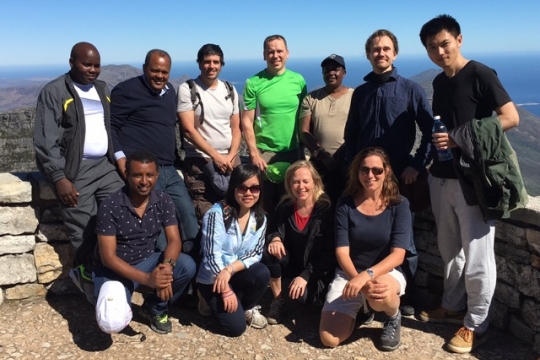When a country wants to tally up its economic performance, it generally uses ‘gross domestic product’ as its measuring stick. That’s a global standard of accounting, agreed upon according to the United Nations’ ‘systems of national accounting’, which allows all countries of the world to compare apples with apples in their economic reporting.
But no such standard exists for measuring the economic value of the ecosystem services provided by nature: the wetlands which filter and trickle feed water into river systems; the processes that build up fertile soils for growing food; pollination offered by so many insects, birds and rodents; regulating climate; fuel and fibre resources, and so on.
This week, the Ecosystem Services Accounting for Development (ESAfD) working group gathered in Cape Town to thrash out the best methods for valuation of three key services offered by nature: pollination; systems that improve water quality; and green urban amenities.
In South Africa, for instance, half of all food crops are pollinated by insects. Local researchers estimate that this ecosystem service has a commercial value of about R10 billion (650 million US$) per year. But how does this compare with the calculated value of pollination services in a country such as Costa Rica, or Ethiopia?
Dr Jane Turpie, director of the University of Cape Town’s Environmental Policy Research Unit (EPRU) and workshop organiser, says an accounting system like this needs to have well-developed methods for quantifying and valuing such services.
The ESAfD is a seven-country collaboration between South Africa, Costa Rica, China, Tanzania, Kenya, Ethiopia, and Sweden, and is led by the Swedish Environmental Protection Agency.
‘This is a four-year project,’ Turpie explains, ‘the working group was formed a year ago, and we’ve been meeting once a month by teleconference to work on our methodologies for valuing ecosystem services. Now we needed to get together in person to further develop these methodologies.’
‘We recognise that different countries have different data. If we want to scale up a way of measuring an ecosystem service, or transfer values from one country to another, we need a better approach to avoid errors.’
By Leonie Joubert
